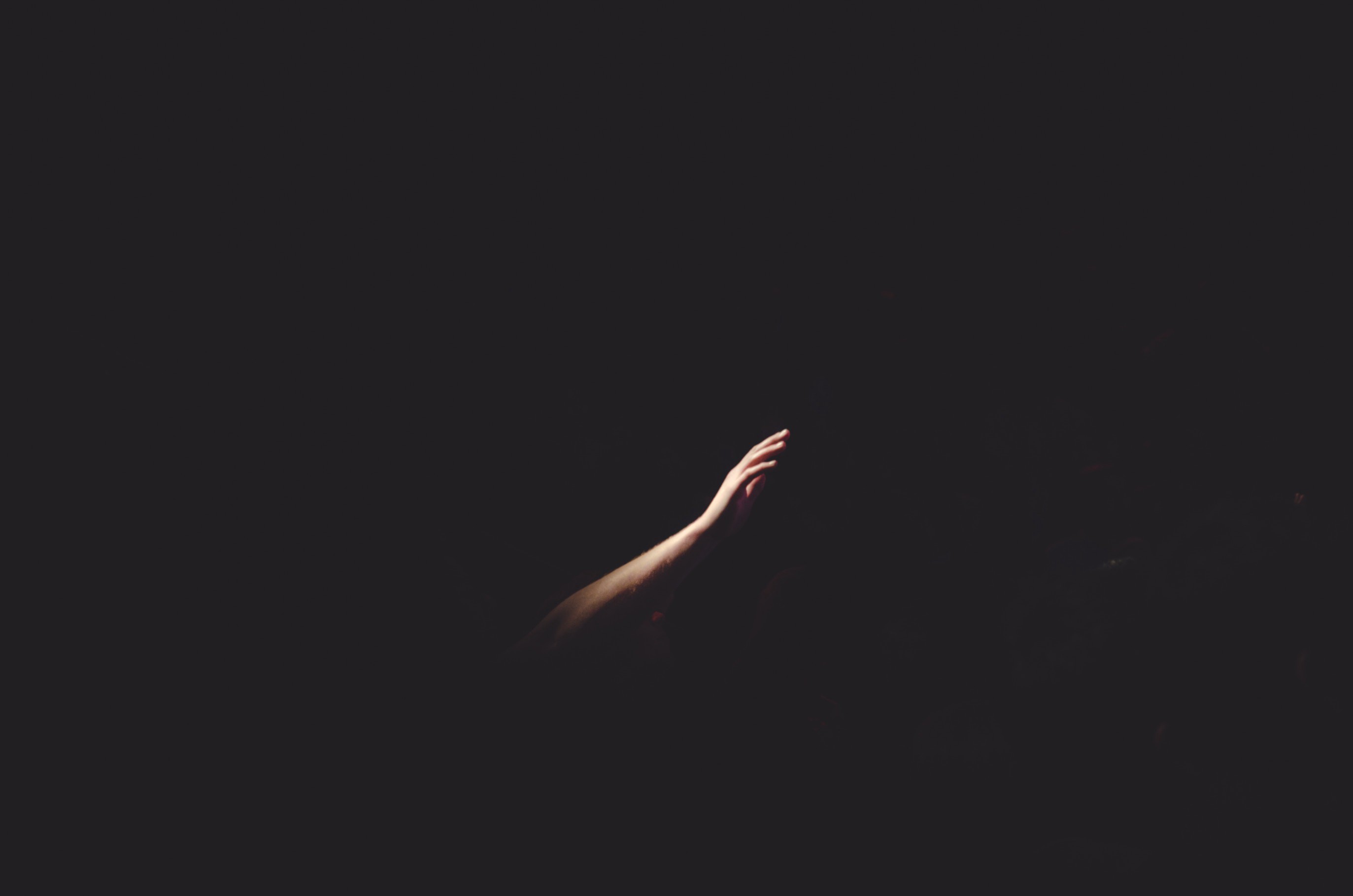?Women have served all these centuries as looking glasses possessing the magic and delicious power of reflecting the figure of man at twice its natural size.? ? Virginia Woolf, A Room of One?s Own
 Photo by Inga Gezalian on Unsplash
Photo by Inga Gezalian on Unsplash
Mirrors reflect light which allows them to reflect the world around them. In spiritual concepts, light is a powerful symbol of wisdom and awareness. As a consequence, mirrors are symbols and carriers of truth and reflect what our truth is. Psychology tends to be more critical of mirrors which represent the barrier between conscious and unconscious and therefore, by looking deep into a mirror, we look deep inside ourselves in a conscious way, following a thoughts process.
Literature has this beautiful gift that it presented and described mirrors as many different vectors and symbols. The mystical and spiritual beauty of reflection that came with many works from Goethe to Rilke, transported through many spectrums of learning.
Let?s dive into the poetic work of Sylvia Plath, the short fiction of Virginia Woolf and the science-fiction novel of Sarah Waters to discover many mirrors and many reflections. Sometimes seeking stability, sometimes unveiling feelings and sometimes haunting us, mirrors have always been a mystical symbol and a powerful unique tool of empowerment, courage and discovery in women?s literature.
Sylvia Plath ? ?Mirror?
?I am silver and exact. I have no preconceptions. Whatever you see I swallow immediately Just as it is, unmisted by love or dislike.
I am not cruel, only truthful ? –
The eye of a little god, four-cornered.
Most of the time I meditate on the opposite wall. It is pink, with speckles. I have looked at it so long I think it is a part of my heart. But it flickers. Faces and darkness separate us over and over.
Now I am a lake. A woman bends over me, Searching my reaches for what she really is.
Then she turns to those liars, the candles or the moon. I see her back, and reflect it faithfully.
She rewards me with tears and an agitation of hands. I am important to her. She comes and goes. Each morning it is her face that replaces the darkness.
In me she has drowned a young girl, and in me an old woman Rises toward her day after day, like a terrible fish.?
Sylvia Plath?s poem ?Mirror? is a pulchritudinous example of the use of the mirror imagery and symbolism. The mystical and rousing writing style in this poem brings the mirror to a spiritual level by elevating the mere object to a sacred symbol?s status. The poem itself describes the life journey of a woman who witnesses herself growing older through her reflection in the mirror.
This poem is particularly interesting in the era we, as women, are living in. In women?s literature, the mirror has often served the sole purpose of reflecting a man. As the woman discovers in the mirror the reflection of the man she is supposed to love and serve, she leaves her identity on the side and accepts a subconscious idea of masculinity?s needs. Enhance Virginia Woolf?s postulate on the subject in ?A Room of One?s Own? : ?Women have served all these centuries as looking glasses possessing the magic and delicious power of reflecting the figure of man at twice its natural size.?
In this poem, however, the woman is looking for herself, for her truth. Whether the poem spans years or is set in the present, the woman wants to know who she is, is looking at her soul through the mirror. This quest for self-discovery encompasses important notions of womanhood, femininity, identity, spirituality and truth.
 Photo by eberhard grossgasteiger on Unsplash
Photo by eberhard grossgasteiger on Unsplash
Virginia Woolf ? ?The Lady In the Looking Glass?
?Even if fall she must, it was to lie on the earth and moulder sweetly into the roots of violets.?
This short story written by Virginia Woolf and published in 1929 is composed of glances, reflections in a mirror located in a woman?s dressing room in Britain. All along the story, we get an interesting and deconstructed portrait of Isabella?s life without ever touching into personal details or in-depth knowledge of herself and her feelings.
Through the use of a mirror as the main object reflecting the story, Virginia Woolf wants to put an emphasis on stability, on a sense of eternal truth. She wants to describe what is happening in this complex decor we call life with a powerful reflection tool. All these immuable elements compose the ?eternal truth? sometimes tinted with unfathomable interferences of the heart and mind. As she qualifies it herself in the short story, the mirror is bringing ?stillness and immortality?.
Presenting a woman?s life and decor by putting her as the protagonist of her own life and her own truth is a powerful symbol in women?s literature. This short story is giving women a space in society and life, and most importantly the first role in their own reality and truth. Isabella is present, feeling the uproars and entropy of love, time and routine. As a woman, she sees the reflection of herself, of her world, of her truth, forever seeking the new emotions, spiritual awakenings and elements of truth within herself.
 Photo by Cherry Laithang on Unsplash
Photo by Cherry Laithang on Unsplash
Sarah Waters ? ?The Little Stranger?
?And perhaps there is a limit to the grieving that the human heart can do. As when one adds salt to a tumbler of water, there comes a point where simply no more will be absorbed. (?) I seem to have been cross, somehow, all the time when I was a girl. I was horrid? You?re supposed to grow out of horridness, aren?t you? I don?t think I ever grew out of mine. Sometimes I think it?s still inside me, like something nasty I swallowed that got stuck.?
What is very interesting and different about Sarah Waters? ?The Little Stranger? is how the author uses the mirror as a vector to introduce a spiritual, supernatural event in the novel. It is interesting how mirror can a lot of the time, in life and Art, induce self-reflection in us but also suggest a deeper truth than we had ever conceived before. Deep spiritual interrogations, sacred meanings and quests or what some will call supernatural or energetic remaining presence, can appear to people in a clearer way through reflection.
In Sarah Waters? novel, the protagonist tells a bone-chilling story about a mirror. He describes in great details how he had just witnessed a mirror on a stand cross his bedroom, floating by itself towards him directly. As if Sarah Waters? wanted to question our own personal reluctance sometimes to confront ourselves to our own reflection and truth. It is almost as if sometimes, scared of catching our own reflection in the mirror, we tend to feel haunted and pursued by the looking glass.
The ending feels just as nagging and haunting when the protagonist catches his own reflection in the mirror, as a final and inevitable confrontation to his truth. The symbolism and imagery of the mirror in Sarah Waters? work is offered on a very different note, more anxious, on a spooky note. The spiritual outcome of the novel, however, brings one of the most beautiful and cruelly poetic writing work on reflection and mirroring. Can you ever remain a ?little stranger? to yourself?
Mirrors, allies of women
Whether it is artistically, spiritually or in daily life, mirrors have become real allies of women. Helping our empowerment, our sense of self, the discovery of our truth and our need to hold space for ourselves and others, they have been tools of revolution.
Let us reclaim the power of mirrors in our lives not as reflectors of weaknesses society might want to attribute to us but as intense, profound reflections of our greatness as individuals and creators of power.
Persist, reflect, resist.
?Whatever may be their use in civilized societies, mirrors are essential to all violent and heroic action.? ? Virginia Woolf, ?A Room of One?s Own?


